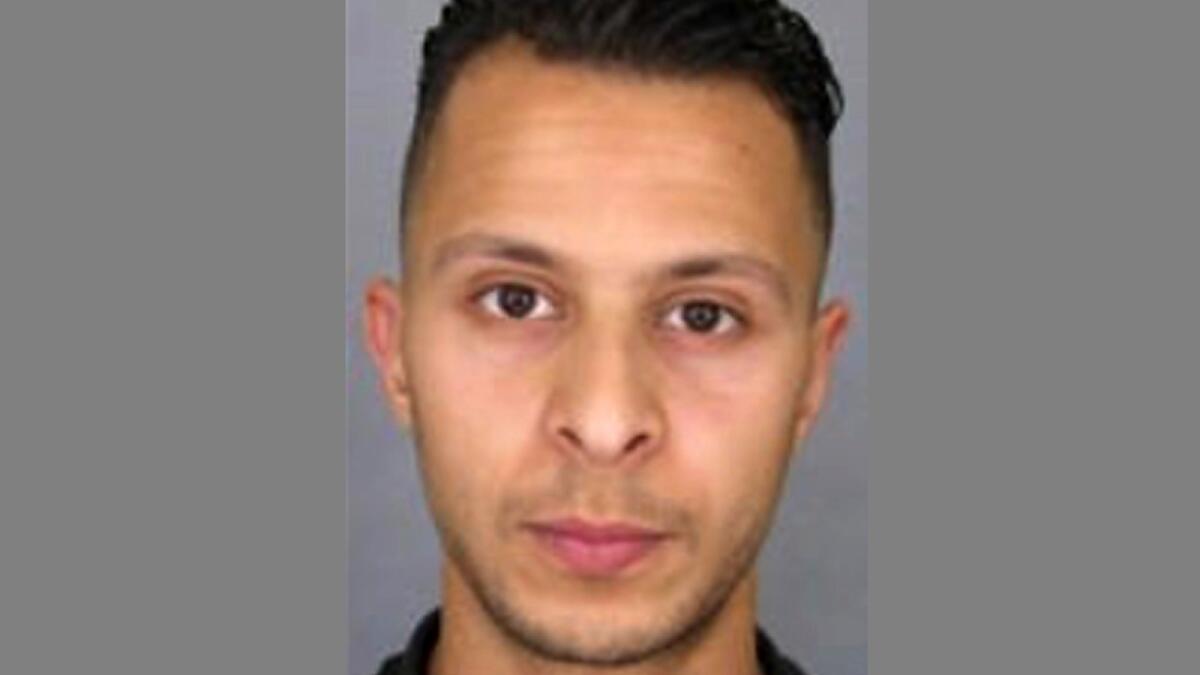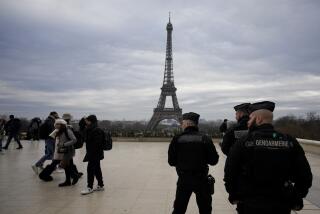Paris attack suspect invokes silence for third time with judge to protest 24-hour surveillance

Reporting from Paris — The only surviving suspect in last November’s attack on Paris refused to speak to a judge Thursday for a third time in protest of the 24-hour video surveillance he is subjected to in his prison cell.
Salah Abdeslam’s lawyer, Frank Berton, said the judge repeatedly asked questions to no avail on Thursday.
Berton said Abdeslam wasn’t obligated to explain his silence but “obviously” it’s linked to the constant surveillance.
Authorities hope Abdeslam can provide information about the Islamic State group’s strategies and networks, and identify others who might have had a connection to the Nov. 13 attacks, which killed 130 people. The same network that attacked Paris struck again in Abdeslam’s hometown of Brussels in March, days after he was tracked down in his hideout and arrested.
His Brussels lawyer was present at Thursday’s hearing in Paris.
While Abdeslam is the only person suspected of directly participating in the attacks, others believed linked to it also are being identified as French and other European authorities continue their investigations.
Austrian prosecutors, meanwhile, announced Thursday that two men who spent time in a Salzburg refugee camp with other suspects tied to the attacks have been charged with being part of the Islamic State militant group.
A statement from the Salzburg prosecutor’s office said the two are suspected of helping the two other suspects through “logistics as well as through gathering information and arranging contacts.”
The two other suspects, who were extradited by Austria to France earlier this year, have been charged with “the preparation of ... attacks in Paris as members of IS,” according to the statement.
The two whose charges were announced Thursday are identified as a 26-year-old Moroccan and a 40-year-old Algerian, but haven’t been publicly identified by name in keeping with Austrian privacy laws. They also are charged with belonging to a criminal organization.
The two extradited in July were a 35-year-old Pakistani and a 29-year-old Algerian. All four are believed to have come to Europe last year posing as refugees.
Abdeslam kept silent at a hearing in May and refused to attend a hearing in July. Berton argued that two round-the-clock video cameras in Abdeslam’s cell in Fleury-Merogis prison could cause psychological damage, but France’s top administrative authority denied the lawyer’s request to remove them. Judicial authorities argue the surveillance is needed to ensure he doesn’t commit suicide.
Abdeslam, 26, had initially said he wanted to explain his path to radicalization and his role in the Nov. 13 attacks on the Bataclan concert hall, a cluster of cafes and the national stadium. The other attackers died in suicide bombings or under police fire.
The precise role Abdeslam is believed to have had in the attacks has never been clear. The Paris prosecutor has said he was equipped as a suicide bomber that night, but abandoned his plans and fled.
Abdeslam evaded police for four months, but was arrested in March in the Brussels neighborhood where he grew up. He was later extradited to France and handed several preliminary terrorism charges.
ALSO
Military veterans offer support to legal fight by Yemeni relative of drone victims
Mexican finance minister who played a key role in Trump visit resigns
Taliban militants storm provincial capital in southern Afghanistan
More to Read
Sign up for Essential California
The most important California stories and recommendations in your inbox every morning.
You may occasionally receive promotional content from the Los Angeles Times.










